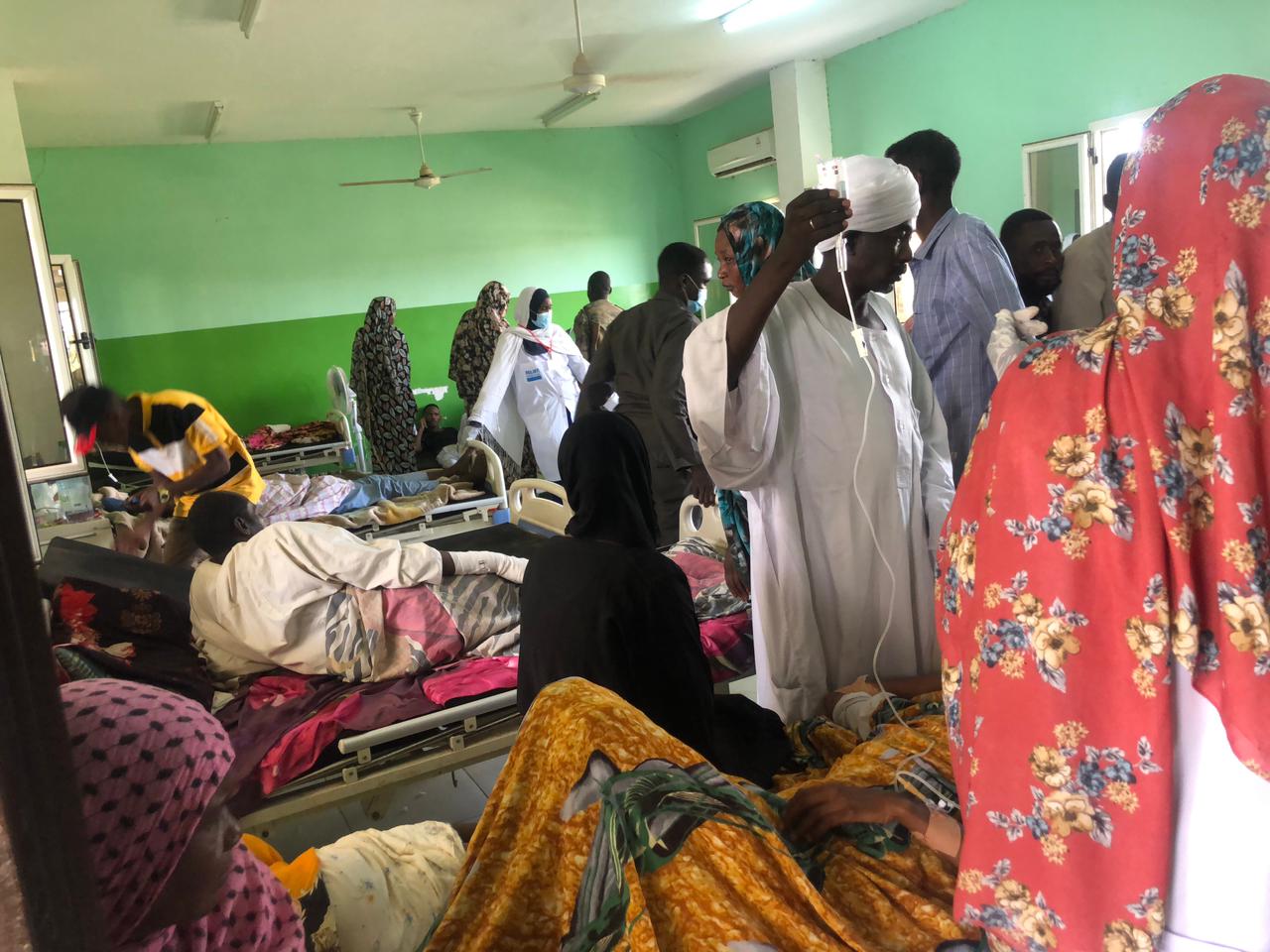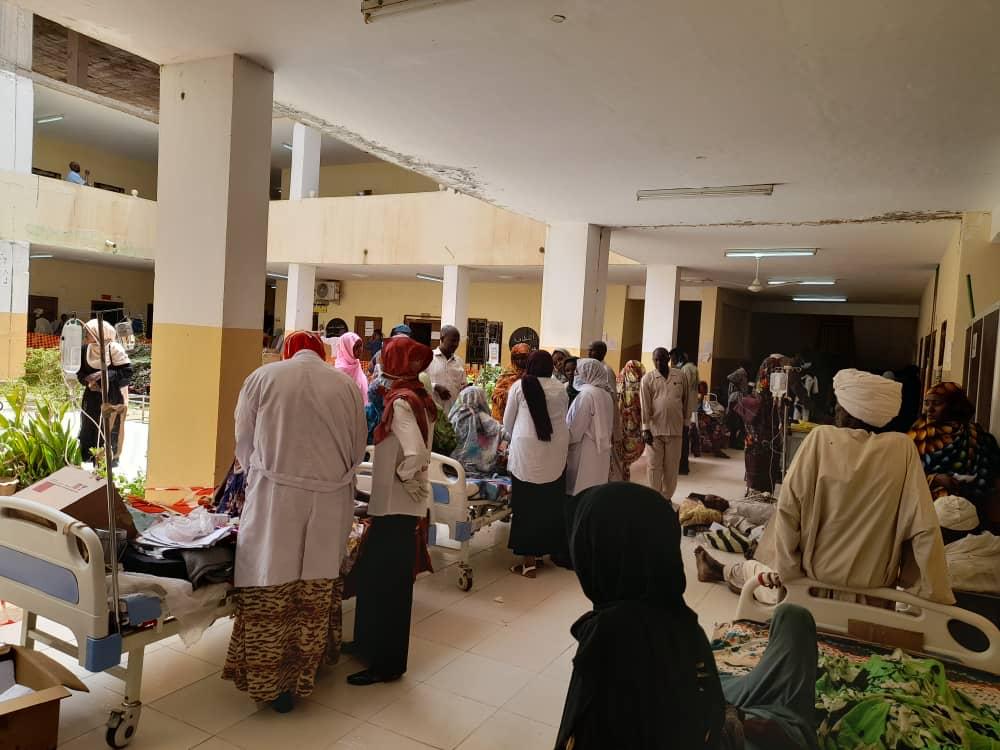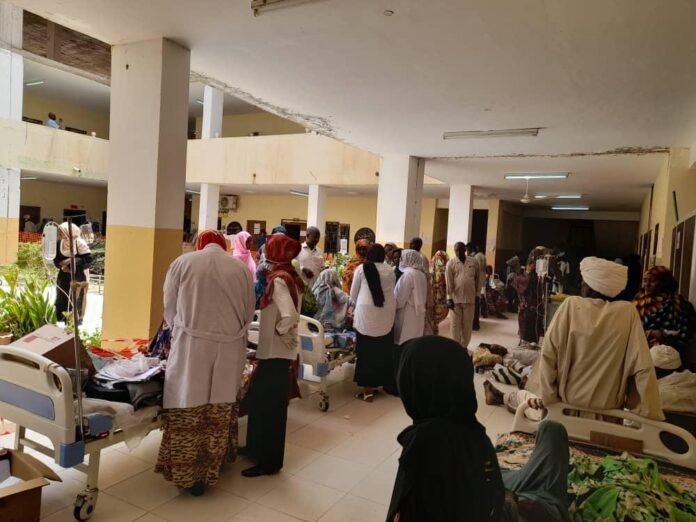By Clifford Akumu
Khartoum, Sudan: The ongoing war in Sudan has pushed its hitherto weak health system to what humanitarian doctors term a “critical situation” after dozens of hospitals were knocked out by more than two weeks of intense fighting.
Doctors reported that seventy per cent of the hospitals in the chaos-stricken nation had been closed. Many areas have been left without power and water.
Food and fuel supply have dwindled. Those left behind only keep hope alive that the next humanitarian assistance will reach their doors before another bombardment.
Medical supplies and access by human resources to the remaining hospitals are lacking, said Dr Khalid Elsheikh Ahmedana, Medical Coordinator at medical charity Doctors Without Borders(Medecins Sans Frontieres, or MSF) in Sudan.
“The health system in Khartoum, or in Sudan, in general, is a weak health system in terms of finance, supply, data and information and human resource distribution. But now, after the violence and the war started-the health system is in a critical situation,” noted Dr Ahmedana. Khartoum was considered as a referral point for all patients, but now it is vice versa said the doctor.

“So patients, instead of going to Khartoum, coming to Khartoum, they are moving out of the town. And the hospitals in those places are now facing a more severe situation,” said Dr Ahmedana as gunshots filled his background during the interview.
“Victims of no-violence, patients who don’t have access to the health facilities or they don’t have access to good care, medications, are more and they are increasing -especially those with renal failure and need dialysis, patients with heart disease, cancer, haemophilia, neonates, obstetrics and gynaecology.”
The Central Committee of Sudanese Doctors(CCSD) in April reported that 39 out of 59 hospitals in Khartoum and nearby states were out of service.
The residents of Khartoum-historically the safest city in Sudan even when war ravaged in other states two weeks ago woke up to find the conflict had come to their doorstep.
The city now looks like a war zone.
That fighting, UN agencies report, has displaced at least 334,000 people inside Sudan and sent tens of thousands more to neighbouring countries like Chad, Egypt, South Sudan Ethiopia and Central African Republic.
Most aid workers are increasingly concerned about the lack of basic services in these areas.
Dr Ahmedana also painted a grim picture of the medical situation in the country following MSF’s recent visit to the Turkish Hospital in Khartoum.
Turkish Hospital added Dr Khalid, used to be an obstetrics, gynaecology and paediatric facility but has now been repurposed to treat the wounded.
Due to the ongoing war, they have added surgical capacity.
“The facility has so far added about 20 to 30 beds for the surgical department for those wounded in the war.
Three days before our visit to Turkish, the hospital received mass casualties-around 60 patients and there were three deaths recorded. Currently, the hospital is doing around 5 to 8 surgeries per day. It depends on the violence,” Dr Ahmedana said adding that MSF has donated medical supplies to the facility.
The medical charity has started running mobile clinics in the Wad Madani area as part of the humanitarian response.
Most doctors who are working in hospitals are volunteers. But the number of caesarean sections and patients in the delivery ward is lacking a bit of supply and medication.
The doctors, mostly volunteers, have had to increase their capacity of doing their sessions up to 102 per day for the dialysis patients. They are also receiving patients with diabetes.
“The hospital is semi-crowded” the doctor noted.
“The neonatal ward has had to close due to incapacity. Sometimes a specialist of obstetrics is covering also internal medicine, and they are trying to treat them.”
MSF is also worried that there is a high risk for environmental health.
“Some of the areas are suffering from water shortages, and this could also have consequences later that might lead to epidemics. There are bodies outside and there is no waste management from the cities…the rubbish is gathering, a lot of flies,mosquitoes,”said the doctor.

Dr Khalid said that MSF is looking for partners to craft a coordination mechanism in place with the Ministry of Health and Emergency departments to continue its medical support in the region.
General Abdel Fattah al-Burhan, the country’s army chief and de-facto leader and Mohamed Hamdan “Hemedti” Dagalo, who leads the paramilitary Rapid Response Forces(RSF), have continued to battle as the ceasefire continues to fail.
Recently in Nairobi, UN Secretary-General Antonio Guterres said the international community must tell the two commanders leading the fighting that “the situation is unacceptable”.
“The two generals must face pressure to stop violence and begin a dialogue,” Guterres was quoted by the media.
Both the generals were longtime allies of former President Omar al-Bashir before joining forces to depose him in 2019, and they now fear a similar fate could await them if they fail to manage their alliances.














